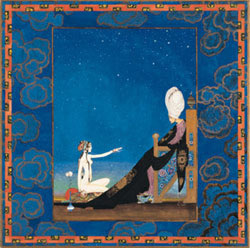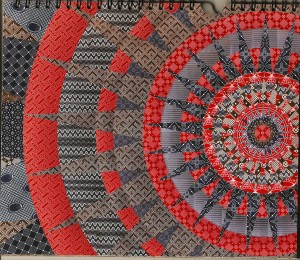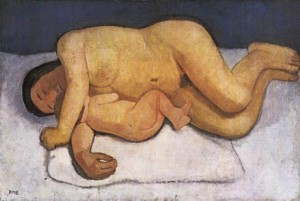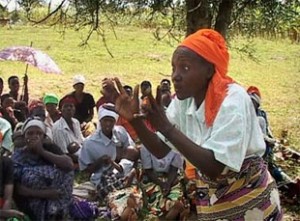Archive for 'arts'
Is it ever okay for a woman to exercise her sexuality to gain political power?
Posted on February 15, 2010, by Kudzai, under Gender Masala, arts, human rights, politics, stereotypes, women, men and more.
Kudzai Makombe

Queen Elizabeth I kept a reign on power by becoming "The Virgin Queen" Credit www.PDImages.com
This question has been puzzling me since a late-night, noisy get together with friends where we got talking (some might say gossiping) about the alleged cross-party sexual politics taking place in our government. The men, it was said, were using sex as a strategy to silence the women from the opposite camps. The woman targeted loses her standing once she’s been seduced as it quickly becomes general knowledge among other politicians.
“Once you see that so and so who used to be so vocal has gone quite then you know they’ve been had,” said one friend. Much like the boarding school strategy employed by male students to remove the top performing girl student’s ranking as number one in class I’m told. But, never having been to boarding school, much less a co-educational school, I am not aware.
As much as this dirty trick is an age-old male strategy to silence female opponents, women throughout history have used their sexuality, that is — whom one has sex with (or not), in what ways, why, under what circumstances, and with what outcomes — as a strategy to gain power. (more…)
56 Comments
Sherezade y el sultán, en el siglo XXI
Posted on February 12, 2010, by Kudzai, under Gender Masala, arts, culture, media, stereotypes.
Diana Cariboni
 Espero entre indignada y divertida el próximo 8 de marzo, Día Internacional de la Mujer… El anterior me deparó una pasmosa sorpresa. Sobre mi escritorio había una enorme rosa de pétalos amarillos y bordes rojos y una tarjeta dirigida a las mujeres del siglo XXI, en su día. (more…)
Espero entre indignada y divertida el próximo 8 de marzo, Día Internacional de la Mujer… El anterior me deparó una pasmosa sorpresa. Sobre mi escritorio había una enorme rosa de pétalos amarillos y bordes rojos y una tarjeta dirigida a las mujeres del siglo XXI, en su día. (more…)
158 Comments
Fabrications around AIDS in 2010
Posted on December 26, 2009, by mercedes, under Gender Masala, HIV/AIDS, arts, culture, health, media.
By Mary Crewe and Pierre Brouard
Center for the Study of AIDS, University of Pretoria, South Africa
 Fabrications is the theme of the 2010 calendar produced by the Center for the Study of AIDS. The gorgeous images are digitally manipulated African textiles.
Fabrications is the theme of the 2010 calendar produced by the Center for the Study of AIDS. The gorgeous images are digitally manipulated African textiles.
The notion of “fabrications” was inspired by the many stories of the AIDS quilts – designed to tell a story about someone who had died of AIDS, to honour them and to create a memorial to them that could be used as part of the fabric of people’s daily lives.
A fabrication is in this sense both a physical construction of fabrics, but also a psychological and social construction, the story of a life.
We need to tell people’s stories but we also need to acknowledge that we use stories to make sense of AIDS, to cope with it, to fashion it into something bearable, to give it meaning. (more…)
69 Comments
Famous and infamous births
Posted on December 21, 2009, by mercedes, under Gender Masala, arts, children, culture, health, human rights, media, politics, religion, reproductive health, stereotypes, violence, women, men and more.

By Paula Modersohn Becker
When is a photo of a woman giving birth considered pornographic? Take your pick:
A. When it is shown in a pornographic magazine, film or website.
B. Never.
C. When it is emailed to government officials urging action to improve public health.
One could argue about A and B but this blog is about C.
Earlier this year, in Zambia, Chansa Kabwela, news editor at the feisty opposition newspaper The Post, was charged with circulating pornography with intent to corrupt public morals. (more…)
123 Comments
WORLD AIDS DAY 2009
Posted on December 1, 2009, by mercedes, under Gender Masala, HIV/AIDS, arts, children, gays and lesbians, harmful practices, health, human rights, media, politics, religion, reproductive health, stereotypes, truth commissions, violence, war rape, women, men and more.
We share the wish of Marie Mendene Owono: SEND AIDS AWAY.

By M. Sayagues
Marie Mendene is an extraordinary activist from Cameroon and one of the first African women to say publicly that she lives with HIV, in the 1990s, when AIDS was a disease of shame and blame.
This is one of my favourite photos about AIDS in Africa. I took it at Sunshine, her NGO in Douala, in 2003, before antiretroviral treatment became widely available. Only a few Cameroonians in cities could get the life-saving pills.
The day I took the photo, Marie had queued for seven hours and received only half of her monthly ARV pills. She was understandably upset about the poor logistics and delivery of medicines. AIDS magnified all the inadequacies of health systems.
That was then. Today, nearly three million people in Africa are on ARV treatment. This seemed like a dream then, but activists were campaigning hard to make it come true.
Marie had a clear vision of activism. “We should go beyond the begging bowl and the appeal to compassion, beyond the stage of being used to do prevention and awareness, and become part of real-decision making around AIDS,” she told me.
Marie is to the right in the pic, with a fellow activist.
132 Comments
A spiritual gift
Posted on November 23, 2009, by mercedes, under Gender Masala, arts, children, culture, human rights, religion, stereotypes, violence, women, men and more.

Patriarchal in all senses. By M. Sayagues
What drives a 17-year-old girl to enter a monastery? Today she is 30, and still happy about her choice. Her eyes sparkle and her laughter comes easy. She exudes peace.
I will call her Gabra (gift, in Amharic), for our conversation was private. I met her at a monastery near Lalibela, the mystical city of rock-hewn churches in northern Ethiopia.
Monastic life has a long tradition and prestige in the Ethiopian Orthodox Church. The oldest monastery dates from the 6th century. A monastic renaissance between the 13th and 16th century brought great moral and political authority to clergy.

Custodians of tradition
Gabra’s rock-hewn monastery dates from the 12th century. Her room is excavated in the pink tufa rock. Two built-in-the-rock platforms, covered with a thin mattress, do as couch and bed. An old cupboard holds a few plates and cooking utensils, three of the long green robes worn by Ethiopian peasants, the white headscarves that nuns wear, and two pairs of sandals.
140 Comments
Jacaranda Watch
Posted on October 26, 2009, by mercedes, under Gender Masala, arts.

The magic continues...

... with scarlet bougainvilleas for contrast.
180 Comments
Purple rain, purple dreamscape
Posted on October 21, 2009, by mercedes, under Gender Masala, arts, culture.

By F. Beaumont
I just have to do it. This posting is not about gender, politics, foreign aid or photoshopped models.
It is about beauty. The beauty of nature: the splendid jacarandas blooming just now that turn Pretoria into a lilac-purple dreamscape.
It s said that 50,000 jacarandas line the streets. When the blossoms drift to the ground, carpetting sidewalks, it’s like a magical purple rain. Awesome.

By F. Beaumont
433 Comments
Beauty as an optical illusion
Posted on October 12, 2009, by mercedes, under Gender Masala, adolescents, arts, children, culture, media, stereotypes, women, men and more.
Fashion models in ads are optical illusions and the award-winning video Evolution of Beauty, from the Dove Campaign for Real Beauty proves the point eloquently. Watch it at:
http://www.campaignforrealbeauty.ca/bblank.asp?id=6895
Digital cosmetic surgery - nip-and-tuck, botox and liposuction, on the screen, with a click - render these models picture-perfect (excuse the pun) and thoroughly unreal.
There is no way a non-photoshopped woman can attain that perfection. Hey, we are human. We have flaws.
108 Comments
Women, justice and memory
Posted on June 29, 2009, by mercedes, under Gender Masala, arts, human rights, media, truth commissions, violence, war rape.

Remembering in Rwanda. Courtesy Anne Aghion
What happens when the relatives of the murdered confront their murderers? What happens if they have to live with the murderers?
This is the theme of “My neighbour, my killer”, a film about Rwanda’s extraordinary attempt at reconciliation. This documentary by Anne Aghion, which premiered in New York two weeks ago at the Human Rights Watch film festival, follows a gacaca or community court during five years.
Rwanda has set up some 12, 000 gacaca where killers face the relatives of those they killed during the genocide in 1994. (Read an interview with Aghion here).
25 Comments

